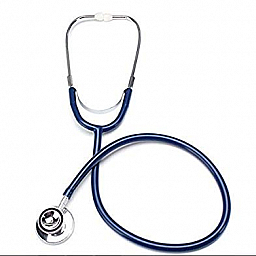Tagged Questions
Severe measles infection can cause a baby's immunity to be very low making it prone to infections like pneumonia. It is important any child that suffers from measles be seen by a doctor for proper evaluation and management.
It's possible to have recurrent pneumonia when their are risk factors. Getting rid of such risk factors will be helpful.
Some children have issues clearing secretions from their lungs e.g cystic fibrosis. These children are prone to recurrent infection.
A foreign body in the airway will also cause recurrent infections.
So if a child is having recurrent pneumonia, see a paediatrician for evaluation.
Once pneumonia is treated appropriately, it has cleared! If your has a chronic cough that is not resolving with treatment he/she needs to be evaluated for causes of chronic cough.
Some children have issues clearing secretions from their lungs e.g cystic fibrosis. These children are prone to recurrent infection.
A foreign body in the airway will also cause recurrent infections.
So if a child is having recurrent pneumonia, see a paediatrician for evaluation.
Once pneumonia is treated appropriately, it has cleared! If your has a chronic cough that is not resolving with treatment he/she needs to be evaluated for causes of chronic cough.
Please was she given any medication after the diagnosis?
Yes, he can take his immunization as long as his fever has subsided. But if the child is still having fever, you may want to hold on.
Many things are considered before the diagnosis of Asthma can be made
Kindly take the child to the Teaching hospital to see a Paediatrician or ENT surgeon for further evaluation and management .

Dr. Dara Abiodun
Medical Doctor
Pneumonia is a form of acute respiratory infection that affects the lungs. Once treated properly, it clears! One must be careful to avoid a recurrence though. It can be prevented by immunization, adequate nutrition and by avoiding environmental factors.





Pneumonia accounts for 16% of all deaths of children under 5 years old, killing 920 136 children in 2015.
Pneumonia can be caused by viruses, bacteria, or fungi. Pneumonia can be prevented by immunization, adequate nutrition, and by addressing environmental factors. Pneumonia caused by bacteria can be treated with antibiotics, but only one third of children with pneumonia receive the antibiotics they need.
What is Pneumonia?
Pneumonia is a general term for lung infections that can be caused by a variety of germs (viruses, bacteria, fungi, and parasites).
The most common bacteria causes are Streptococcus pneumoniae and Haemophilus influenzae type b (Hib). Respiratory syncytial virus is the most common viral cause.
Pneumonia is a contagious diseases that can be spread in a number of ways. The viruses and bacteria that are commonly found in a child’s nose or throat, can infect the lungs if they are inhaled. They may also spread via air-borne droplets from a cough or sneeze.
In addition, pneumonia may spread through blood, especially during and shortly after birth.
Risk Factors for Pneumonia
Most healthy children can fight infections with their natural immunity.
Children whose immune systems are compromised are at higher risk of developing pneumonia.
A child’s immune system may be weakened by malnutrition
Failure to exclusively breastfeed infants
Presence of other illnesses such as HIV infections and measles also increase a child’s risk of contracting pneumonia.
Indoor air pollution caused by cooking and heating with biomass fuels such as wood or dung
Overcrowding – living in crowded homes
Parental smoking.
Daycare attendance
Signs and Symptoms of Pneumonia
Fever usually high and sometimes associated with chills, cough, very fast breathing (in some cases, this is the only symptom)
Noisy breathing with grunting or wheezing sounds
Difficulty with breathing – that is working hard to breathe; this can include flaring of the nostrils, belly breathing, or movement of the muscles between the ribs
Vomiting
Chest pain in older children who can complain
Abdominal pain, which often happens because a child is coughing and working hard to breathe
Weakness – less activity
Loss of appetite (in older kids) or poor feeding (in infants), which may lead to dehydration
In extreme cases, bluish or gray color of the lips and fingernails
Children with pneumonia caused by bacteria usually become sick fairly quickly, starting with a sudden high fever and unusually fast breathing. Those with pneumonia caused by viruses probably will have symptoms that appear more gradually and are less severe, wheezing can be more common.
What to do in a child with suspected Pneumonia?
Take to the hospital immediately! A doctor needs to examine the child to confirm the diagnosis of pneumonia. Delay in diagnosis and treatment is responsible for the high number of deaths from pneumonia especially in the under-five children. Treatment is usually with antibiotics. For those who presented to the hospital early, treatment with antibiotics by mouth is okay but for those with severe symptoms especially breathing difficulty, they will require hospital admissions and antibiotics given into the veins (intravenous antibiotics).
Some children may need other supportive treatment like oxygen, intravenous fluids (drips) and drugs to bring down the fever (antipyretics).
Prevention of Pneumonia
There is no reason any child should die from pneumonia. There are well-known preventive strategies. Exclusive breastfeeding for the first 6 months of life protects the child from respiratory infections including pneumonia
Immunization – especially the Pneumococcal Conjugate Vaccine (PCV), the Haemophilus Influenza Type B Vaccine (HIB) usually part of the PENTA vaccine and Measles vaccines are especially targetted to preventing pneumonia.
Avoid overcrowding. Make sure that children sleep in well-ventilated rooms
Avoidance of air-pollution – no parental smoking! No cooking with firewood and stoves in the room close to children. Keep children away from smokes and insecticides sprays
Ensure that children eat adequate meals and are well-nourished.
Keep children away from adults with upper respiratory tract infections. Also keep children at home when they have respiratory infections.
Go to Hospital early if a child has cough and is breathing fast. PLEASE DO NOT RELY on Cough syrup!!! Take the child to hospital immediately. Early diagnosis and treatment will prevent the child from dying from pneumonia.